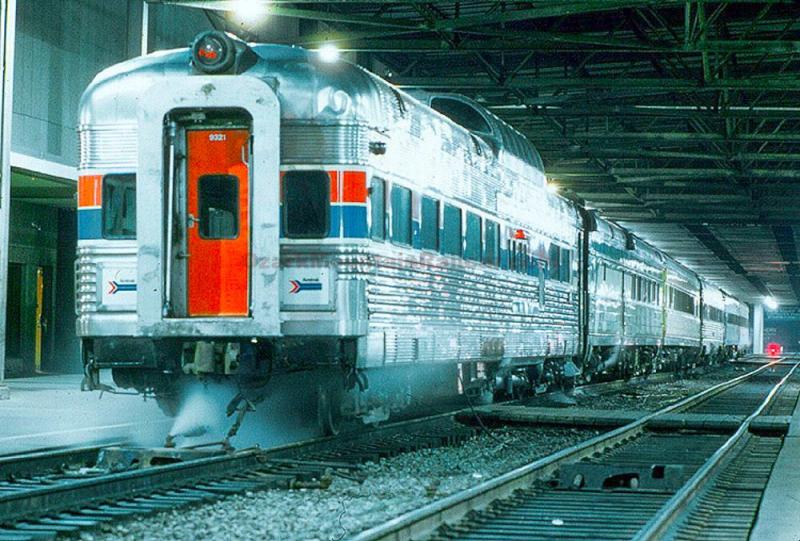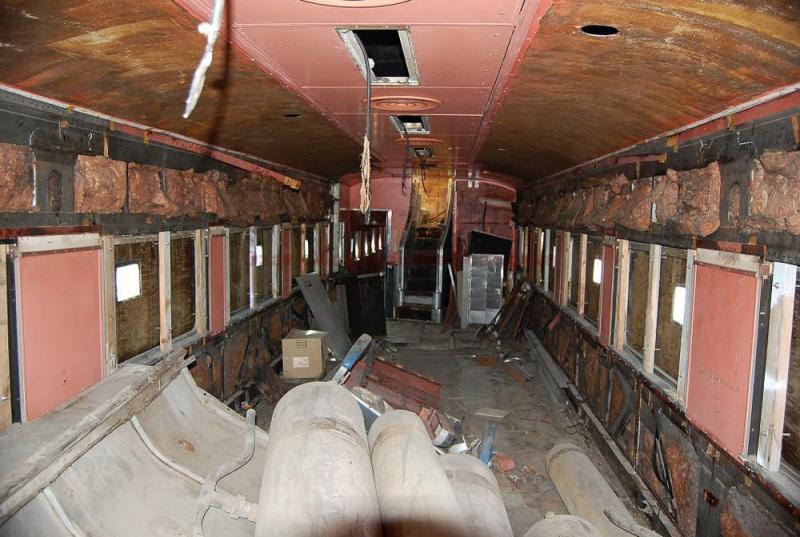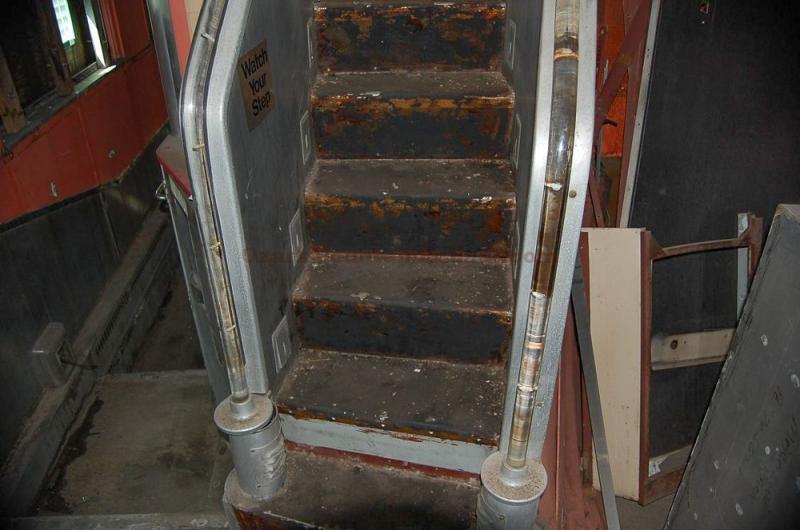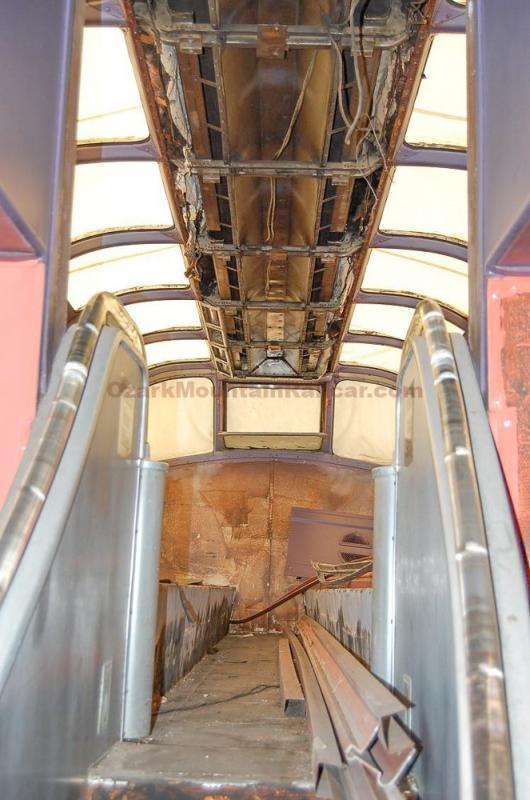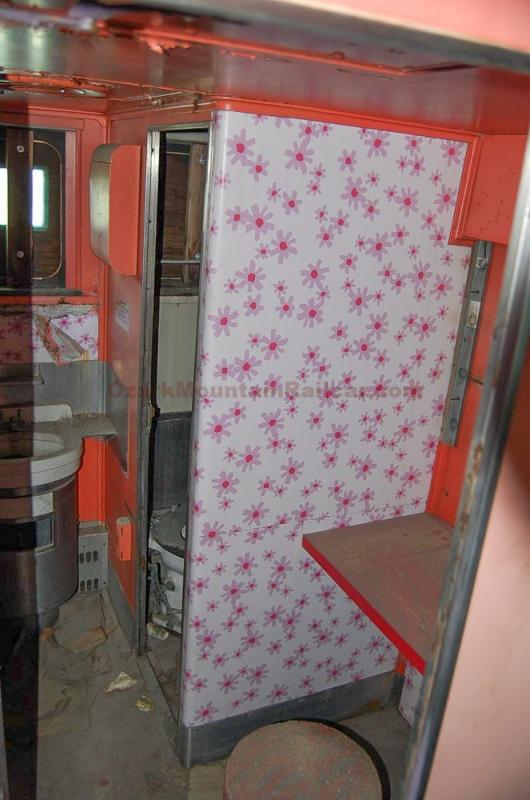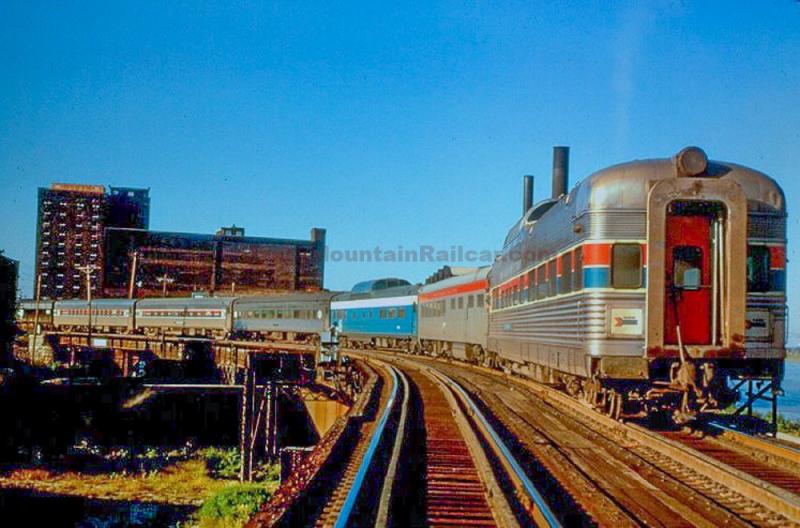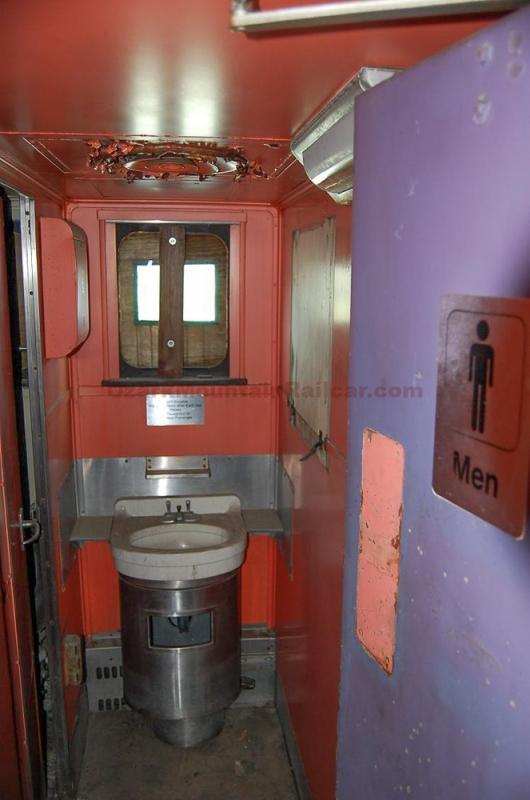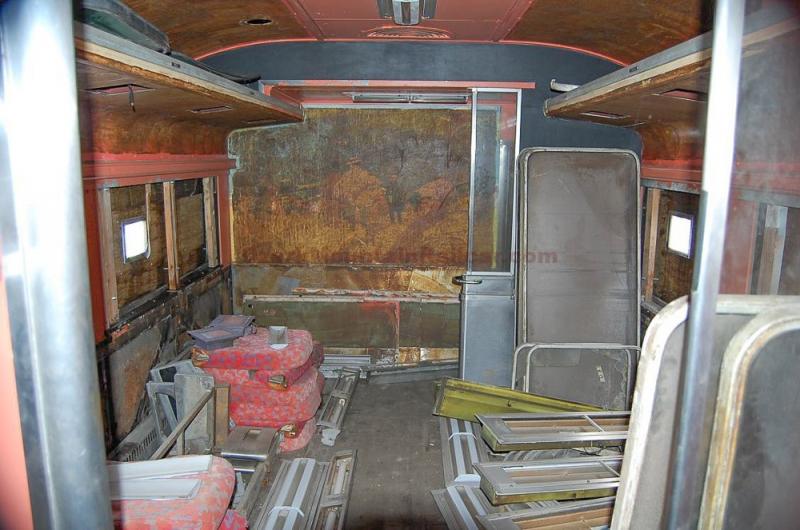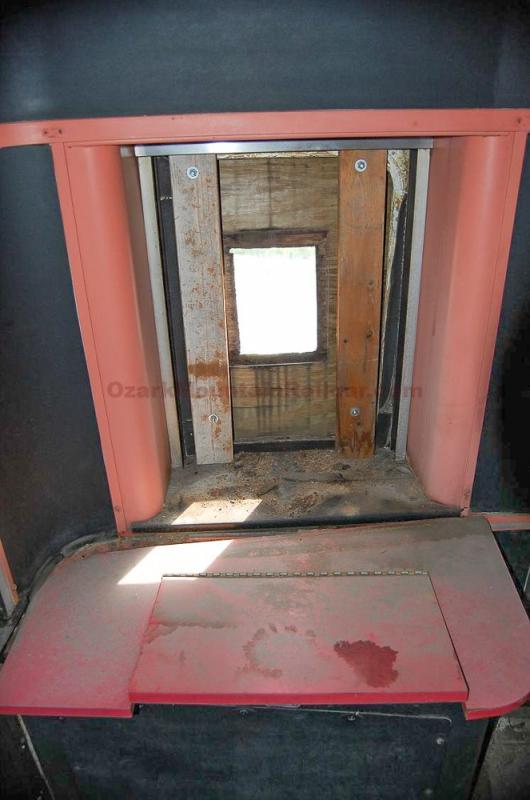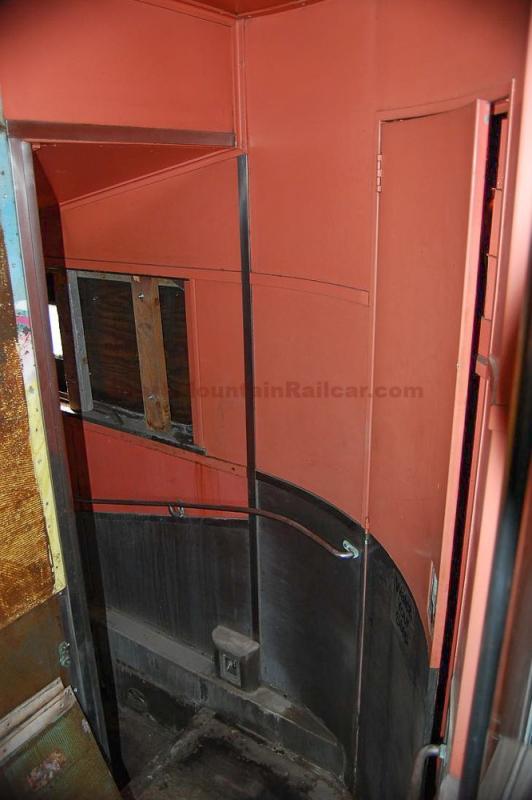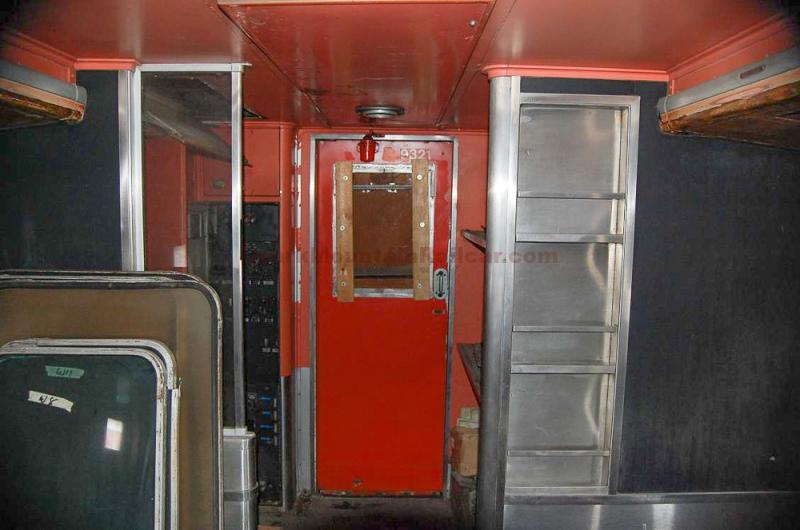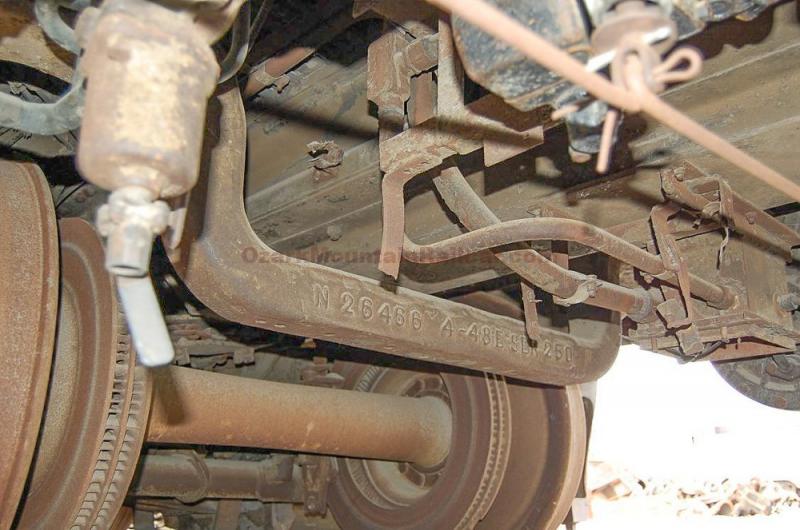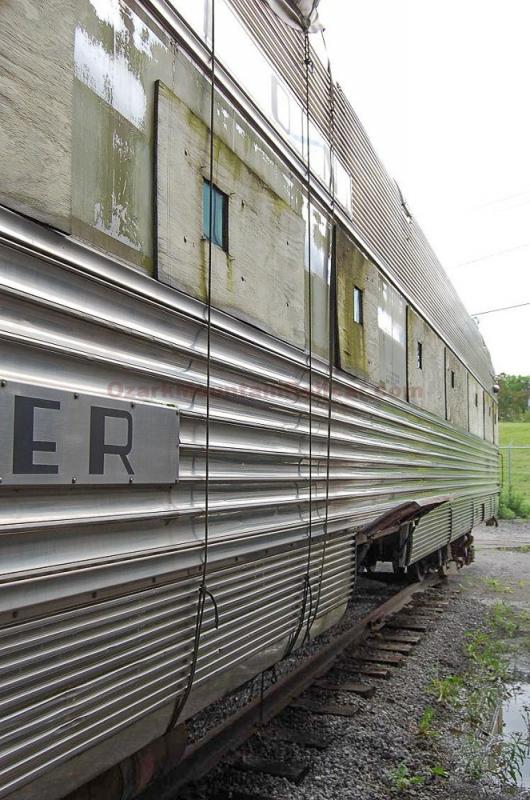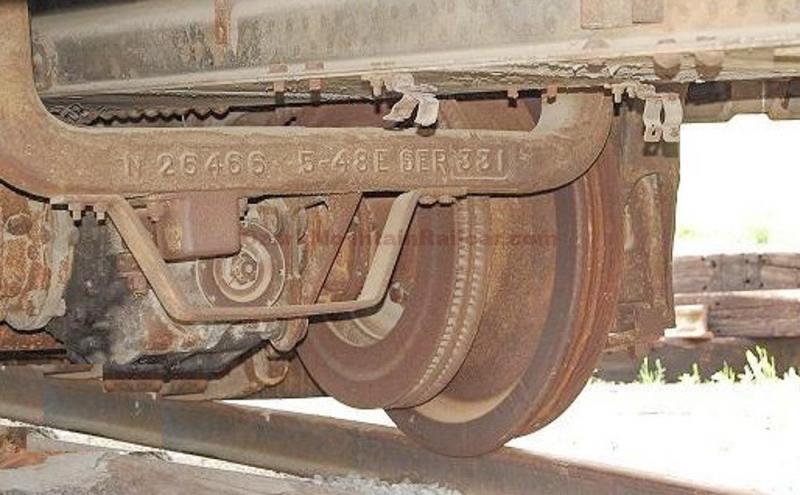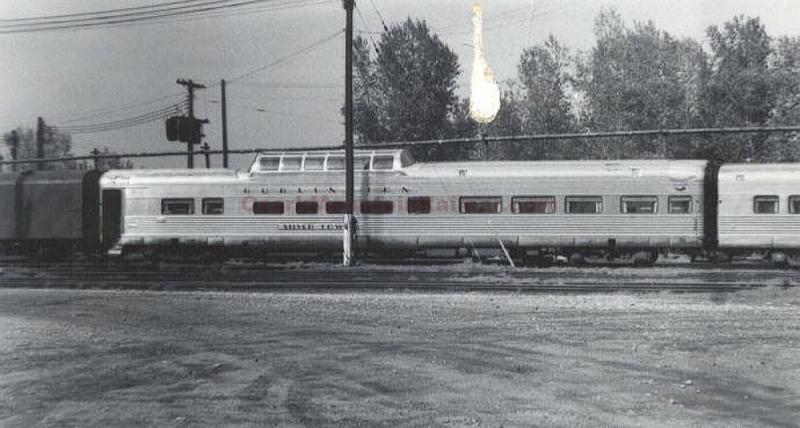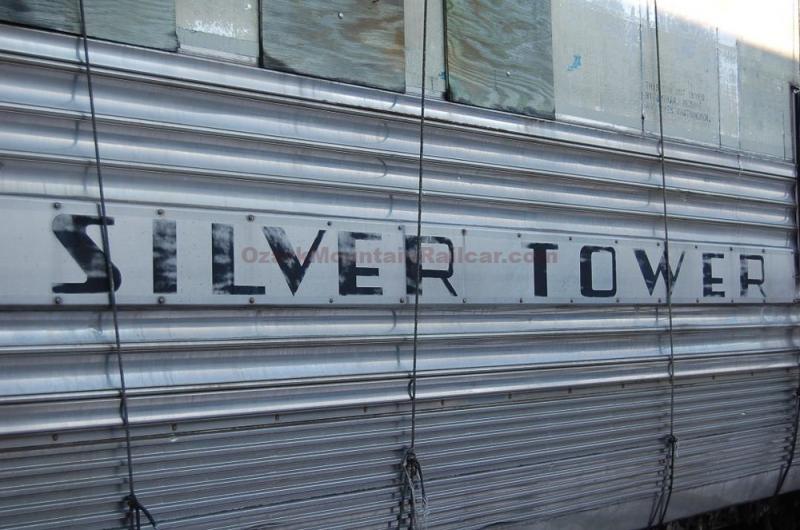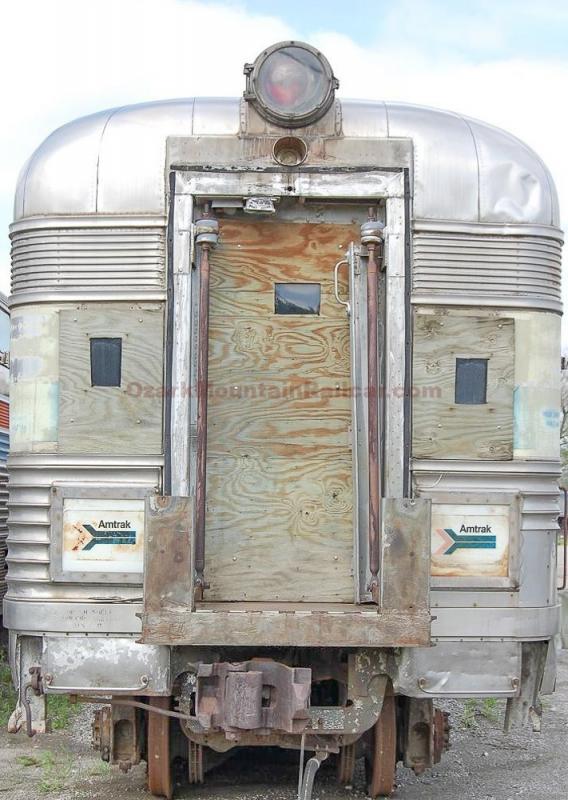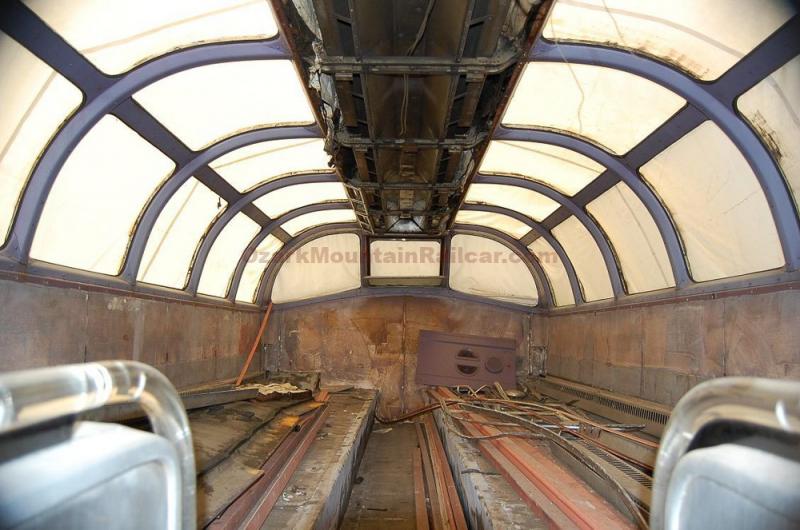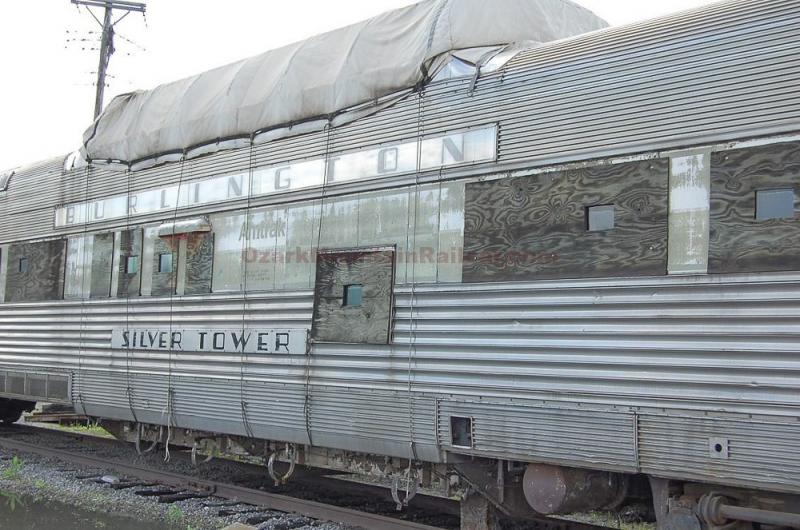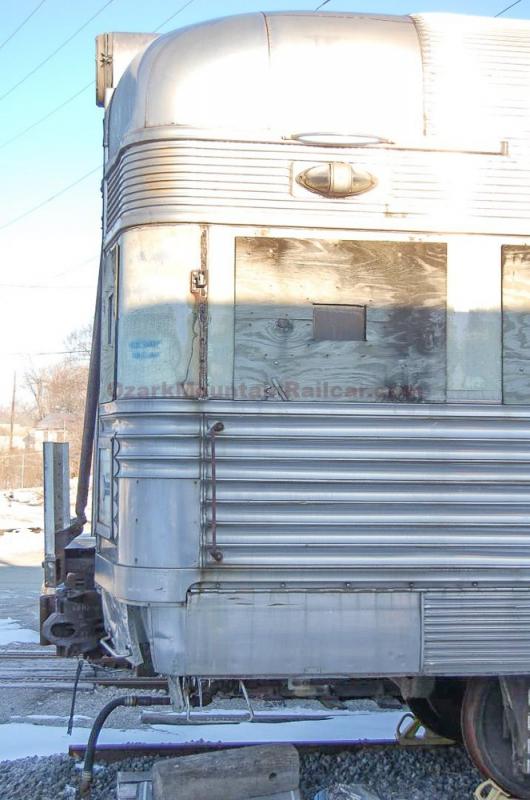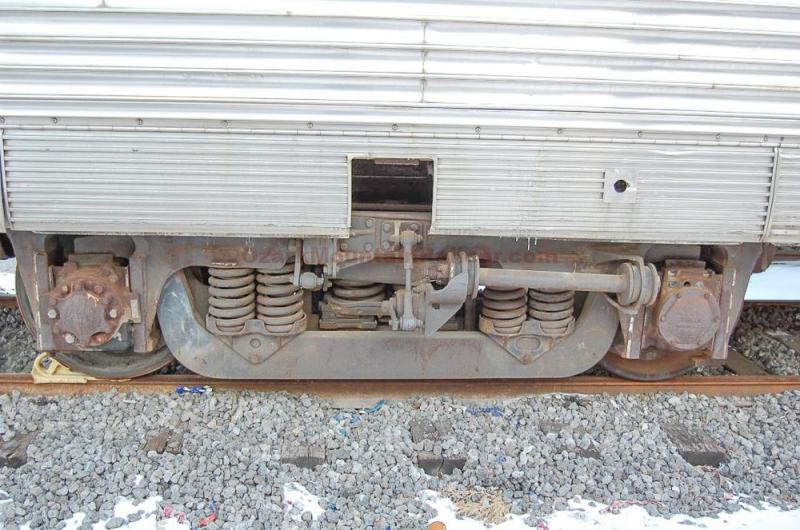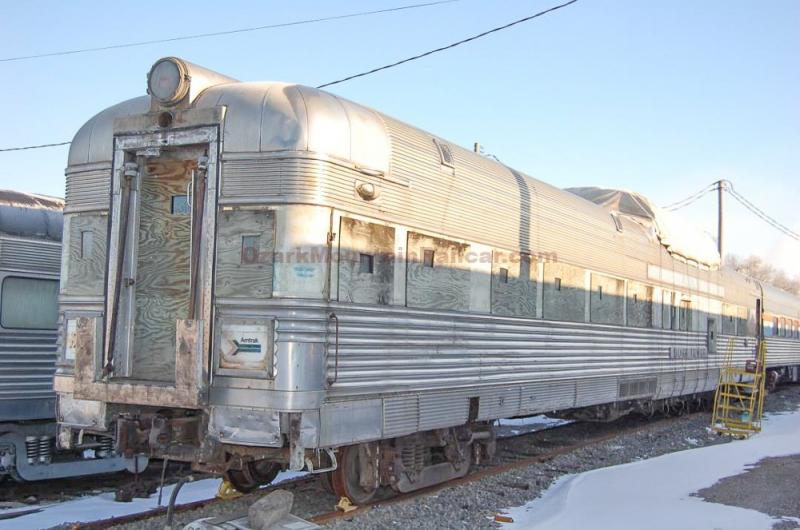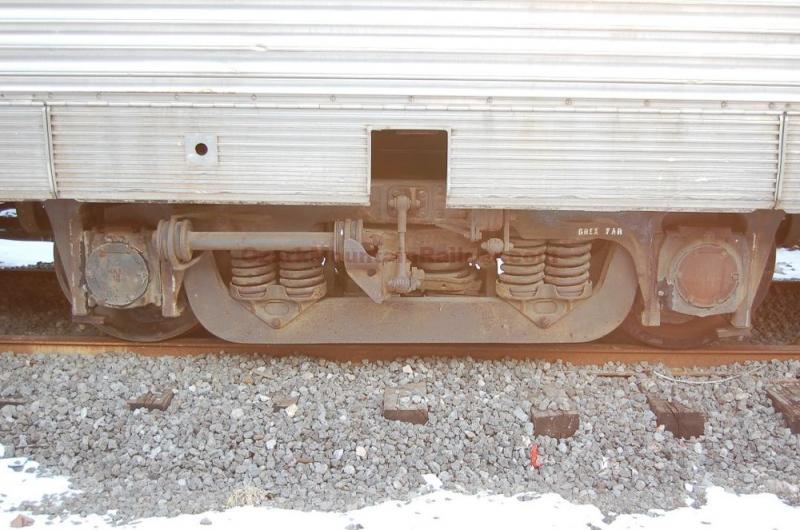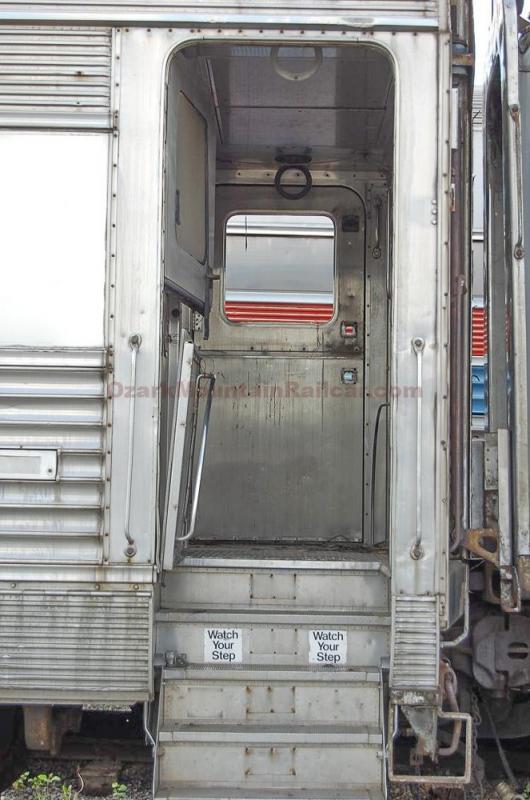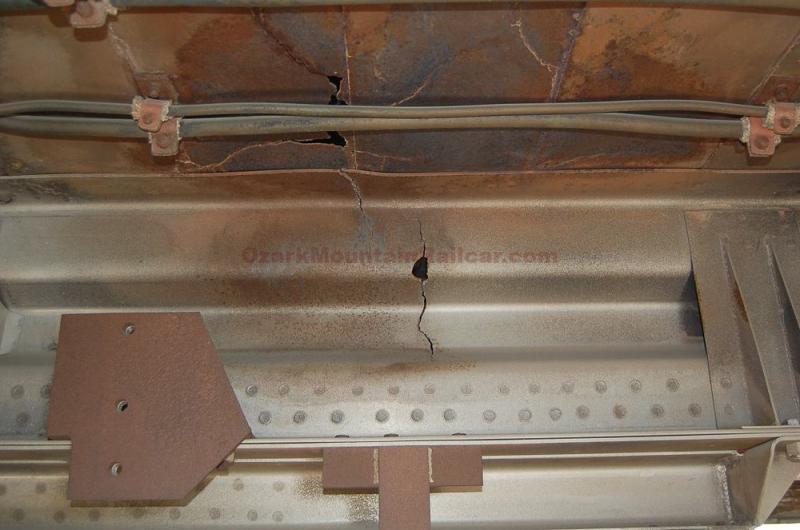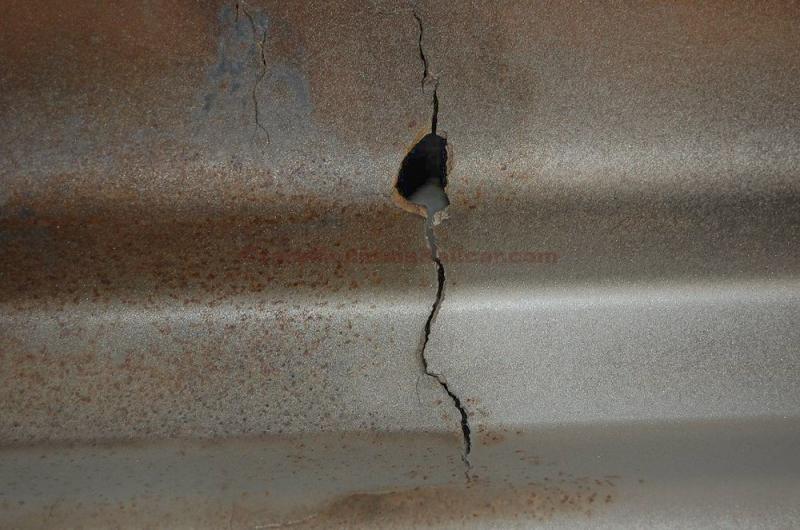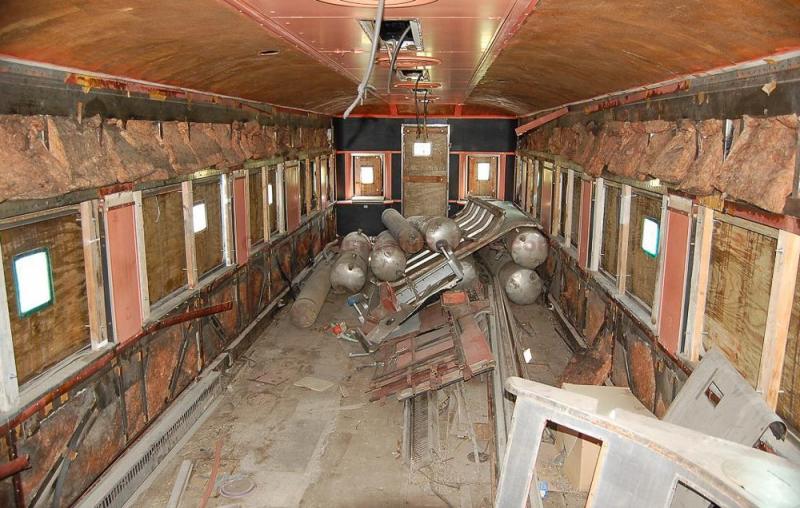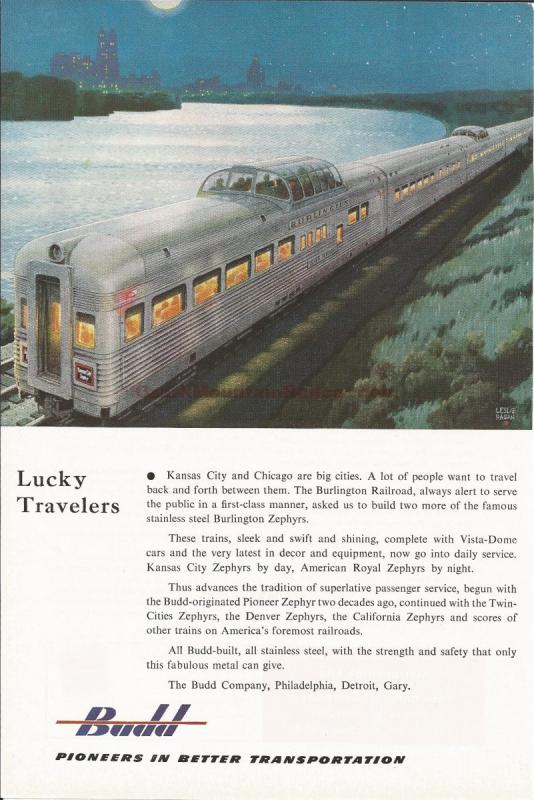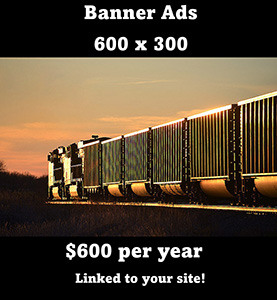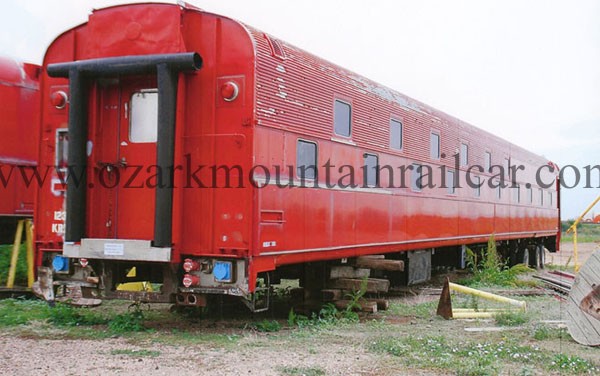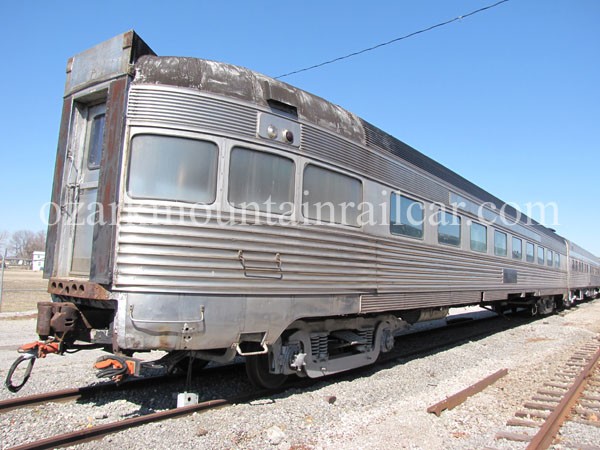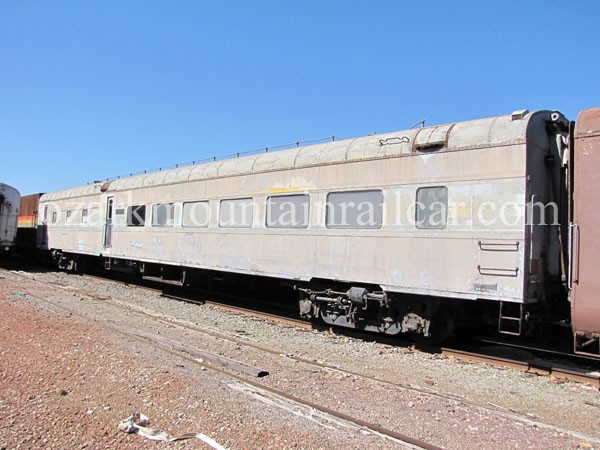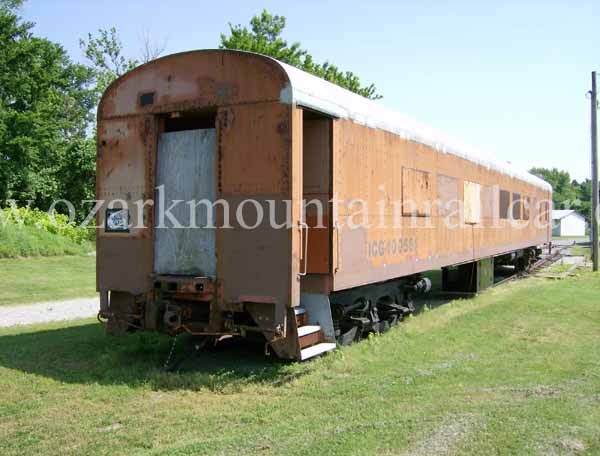CB&Q 366 SILVER TOWER - Budd Built 1952 Dome – Parlor - Observation for Kansas City
Zephyr. When delivered, the Silver Tower featured a small forward parlor section with seats for seven
passengers, with locker and luggage space just inside the entry door. At the rear of the front parlor section was
a commissioned mural depicting a prominent event in the history of the CB&Q. A drawing room was located
under the dome. Beyond the drawing room under the dome was the Men's and
Women's lavatories. Continuing on to the rear of the car, the under dome passageway opens into the spacious
20 seat parlor-observation section at the rear of the car. To the left, a curved stairway ascends to the dome,
seating 24 in paired reclining coach seats. The SILVER TOWER, (and sister car SILVER TERRACE for the Kansas
City and American Royal Zephyrs) were of a new design on the Burlington – the blunt rear end. In a departure
from the rounded end observation cars of the Twin Cities and California Zephyr, the SILVER TOWER has rear
facing windows on either side of the end door, fitted with a diaphragm/buffer for mid-train operation. In the
place of the traditional drum head, the railroads insignia was placed on one side, and the train's name in a
similar style on the other side, back-lit. A large Mars light is above the door for end of train lighting, along with
fixed side markers on either side. The SILVER TOWER did follow one noteworthy trait from the earlier California
Zephyr cars – the raised roof and ceiling in the rear lounge of the car. The extra 8” of headroom made quite a
difference in the spacious appearance of the rear lounge. In Amtrak service as 9321 after 1971, the SILVER
TOWER received Amtrak's first round of bold colored interior treatment, as the remnants show today. In the late
1970's, the car was sidelined mechanically after suffering a battery box fire under the lounge end of the car. An
engineering survey has been completed by an accredited firm, and a repair prescribed for the affected area of
the center still of the car. An updated repair quote to cover this damage can be solicited if desired. The SILVER
TOWER is currently in an unrestored state, with the interior disassembled and stored inside the car.
Some of the mechanical details include: CB&Q inside swing hanger C-frame disc brake trucks with Hyatt/ Timken sealed roller bearing wheelsets, good body and roof, H couplers, interior and all mechanical systems need rebuilt. In addition a center sill crack will also need to be repaired.
Q-How much does it cost to ship a passenger car by truck?
The costs involved with shipping a passenger car will vary a bit depending on the type of car and the equipment the service provider has and of course the distance it must travel. Normally a passenger car will weigh between 60-85 ton, will be approx. 85' long, ten feet wide and approx. 13-15' high sitting on it's trucks (wheel assemblies). The safest method of shipping will be to lift the car off it's trucks and set one end of the car on the back of a semi truck and the other end of the car on a set of road dollies. So basically the car would be pulled down the highway like a trailer. The trucking company will need to make a second trip to pick up the trucks and deliver them to the site before the truck arrives with the car body. It is recommended that the car be set on a short piece of track since that is how the car structure was designed. You normally can find used railroad ties at landscaping companies and for rail we suggest contacting a local railroad museum, shortline railroad or scrap yard. On an average you can expect to spend a minimum of $10,000-$15,000+. The total price will depend on the trucking company and crane companies in the area. Shipping is the responsibility of the buyer and we are more than happy to discuss the project with any service provider so that fully understand the process.
How much does it cost to ship a passenger car by rail?
If a passenger car is capable of being shipped by rail, that does not mean that is the easiest or cheaper method of transport. If the final destination is off live rail then shipping by truck (see above paragraph) will be the best option. This way you know when it will show up and an in what condition it will be in. To ship a car by rail it will need to meet all mechanical and safety standards of the Federal Railroad Administration and the interchanging railroad. In most cases we can recommend a trusted independent inspector who can do an evaluation of the car for you and perform what work needs to be done. On average the car will need to have the air brakes recertified (approx. $5,000-$8,000). And it will need to have UMLER Tags and reporting marks installed on the side of the car (approx. $250.00 - $500.00). If the car is ready to be shipped in freight service (like a box car in a train) you will need to open an account with all railroads involved in the move and get a tariff for moving a passenger on it's own wheels (we can recommend several trusted contractors who can make all the shipping arrangements for you). The railroads charge between $5.00- $15.00 per mile, often the railroads don't go directly from point A to point B so you will need to pay the total amount of mileage the car will travel to get to the final destination. It is recommend that you have the car insured before shipment ( we can recommend several carriers who specialize insuring railroad equipment).
How much does it cost to ship a car by railroad flat car?
Occasionally a passenger car can't be shipped by rail due to it's physical attributes or shipping by truck is not the best option. You can ship a car loaded on a flat car, it will need to be secured to the flat car per American Association of Railroads tie down specifications. The tariff often can be cheaper than moving a car on it's own wheels, but you will still need to pay crane costs at origin and destination and you will need to have an active siding for the car to be delivered to. Shipping by flatcar will start at approximately $10,000 and will be based on origin and destination crane cost and the rail tariff and any car rental costs.
